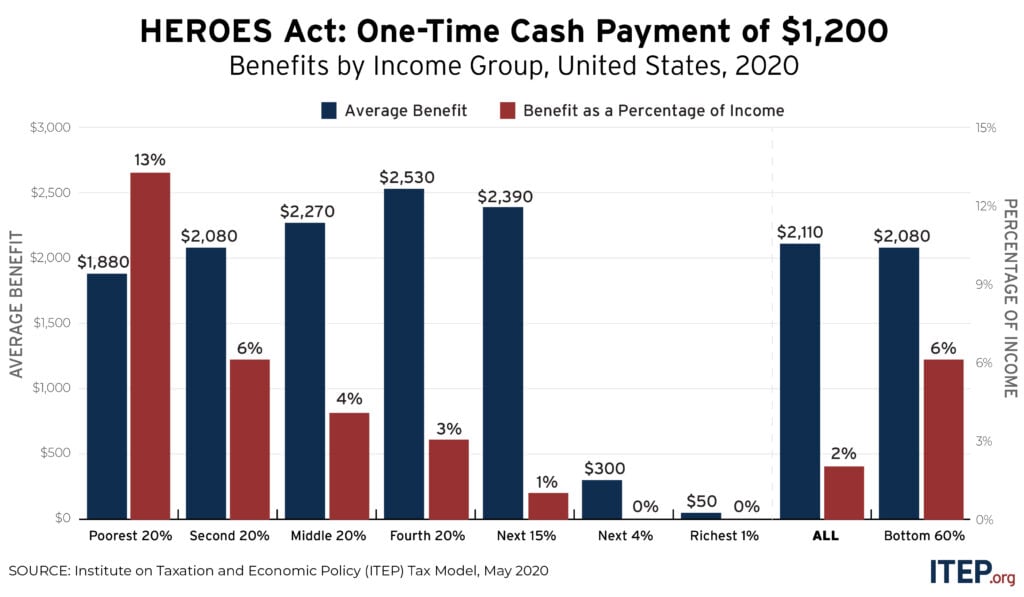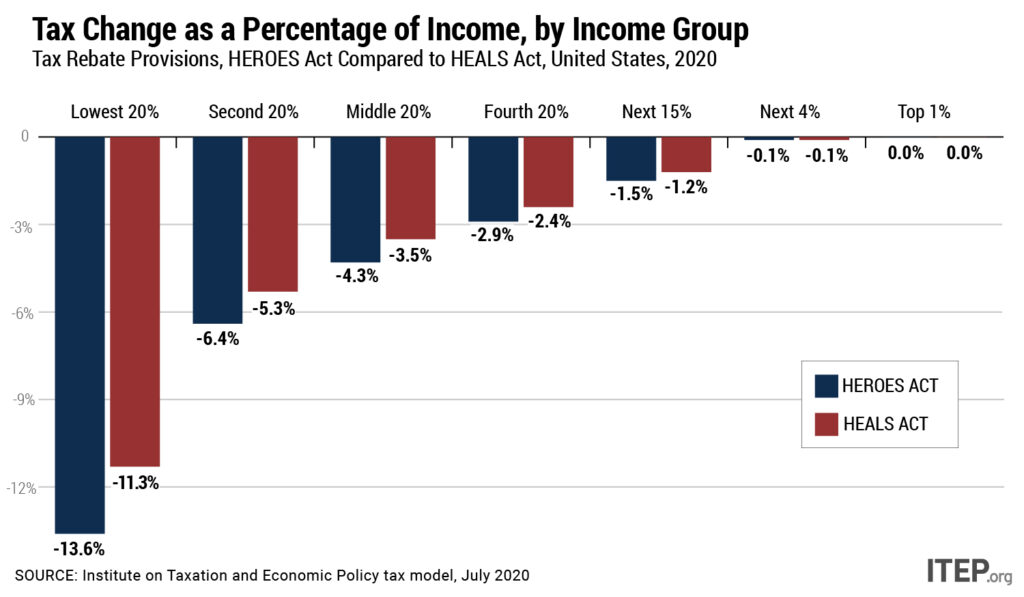Americans are demanding policy that meets the needs of this urgent moment. There are now competing proposals from the U.S. House and Senate: One is a reasonable response to the staggering crisis we’re in. One is not.
On May 15 the House passed the HEROES Act, which provides substantial federal aid to state and local governments, assistance to public schools, an extension of the Unemployment Compensation expansions that have kept our economy afloat amidst unemployment spikes not seen since the Great Depression, cash payments to a larger group of middle and low-income people, and protective measures like hazard pay and an eviction moratorium.
The Senate waited two and half months, until unemployment insurance expansions were days away from ending, until August rent was almost due with evictions looming, and until the inept administration’s response allowed this virus to kill more than 150,000 of our parents, grandparents, children and neighbors. And then, just yesterday, they introduced what they are calling the HEALS Act, which falls short of the HEROES Act in nearly every way and far short of what this country needs right now.
Some details:
On federal help for state and local governments: The House Democrats’ HEROES Act includes $1 trillion in state and local aid. Our communities, from Maine to California, need not a penny less. The Senate Republicans’ HEALS Act provides zilch for states, cities, and small towns. This would force our communities to slash spending on needed services ranging from clean water to paved streets to education that can let our children thrive and achieve through a pandemic. Want more scoop on this? Check out what our friends at Center on Budget and Policy Priorities have to say.
On education funding: Our schools are being forced to figure out how to keep children and teachers safe in a pandemic, how to deliver education online, and how to keep kids emotionally healthy when they can’t play with friends, they might have lost family members, and their parents are distracted, stressed or even sick. Both bills provide comparable amounts to schools—HEALS offers a bit more—but the HEALS Act comes with strings that could make kids and teachers unsafe. A separate Republican bill seeks to divert some of the funding from public education to private schools. Finally, the HEALS Act provides no other help to states and localities. This means, given the current fiscal crisis, states will likely slash education funding so much that HEALS funding won’t be able to fill the gap.
On unemployment insurance: What’s kept our economy chugging along, despite unemployment levels not seen in decades, is the expanded Unemployment Insurance provided in the bipartisan CARES Act passed in March, providing $600 in federal benefits alongside whatever state systems provided, and allowing gig workers, freelancers, and others who don’t normally qualify to share in the benefits. Sen. Mitch McConnell and his colleagues want to slash this payment from $600 to $200, leaving 30 million unemployed workers in the lurch as they try to cover rent, food, and other expenses. See National Employment Law Project and the Economic Policy Institute for all the details you could want about this.
On direct payments: Both bills provide cash payments to get people through a period when they’d be inclined or forced to deeply slash their spending. But the HEROES version provides bigger payments, helps families with children more, and includes undocumented immigrants and their families, many of whom are doing essential jobs in this economy. ITEP today released an analysis that provides a side-by-side comparison of the rebate provision and breaks down the data by race.
On giveaways: Some policymakers can’t resist a chance to provide giveaways to corporate donors, and the Senate’s HEALS Act contains a bunch, from limiting corporate liability if their negligence means employees get sick on the job, to allowing companies to deduct three-martini lunches, to letting millionaires who run passthrough businesses avoid taxes.
On all the rest: We at ITEP focus on taxes, budgets, and direct economic payments to people. But these two bills differ in a lot of other ways. The House Democrats’ bill provides hazard pay to workers on the front lines, helps families with food, prevents evictions, helps restore health insurance to some of the record numbers of people who’ve lost it, and more.
The HEROES Act is not perfect, but it provides much of what we need to survive this terrible moment. Throughout our history, crises like the one we’re in have forced America, sometimes kicking and screaming, to become more the country that we have claimed to be. And it’s only happened because brave people from unemployed workers to civil rights activists to low-income mothers have demanded better from public policy. Today we need to speak up and demand adequate relief from this recession, smart policy to combat this virus, and visionary leadership to help us emerge not the same, but better than we were before. The HEROES Act lays the foundation for that kind of future to emerge.





